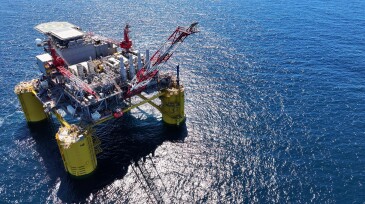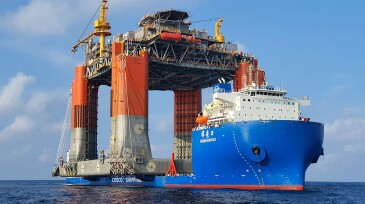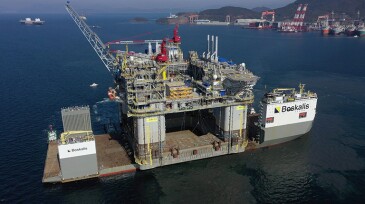megaprojects
-
At peak, 100,000 BOE/D is expected to flow to the Whale production semisumbersible, which largely replicates the Vito semi.
-
Recent developments from Equinor and Murphy Oil Corp. offer hope that the industry is zeroing in the right approach to building megaprojects.
-
The deal marks the biggest injection into Libya's flagging oil and gas industry in 2 decades, but not everyone in the ruling government is on board.
-
As the number of discoveries goes down and headwinds increase, the days of the US Gulf of Mexico megaproject could be numbered.
-
A fresh wave of offshore project sanctions across Southeast Asia could boost greenfield investments in the oilfield service space by almost 70% in 2020. The growth will be driven by a handful of new megaprojects across Malaysia, Myanmar, and Vietnam, according to recent project commitments.
-
Reliance Industries and BP are going forward with the expansion of a huge field off the east coast of India that is expected to fill 10% of the country’s energy needs.
-
In order to meet short- and medium-term expansion goals as well as ensure a sustainable long-term future, an operator has recently embarked on several greenfield and brownfield developments. These involve several megaprojects running in parallel with different teams.
-
A reason why projects are not completed on time is the disconnect between operators and contractors. An integrated asset approach tackles complex offshore jobs by being holistic and full field in nature and encompassing the planning, building, and operating phases of a project.
-
If you love capital projects, and especially the big, complex, and really difficult ones, the petroleum industry is the place to be. Oil and gas development projects provide the young or experienced engineer with all the excitement you could want—challenging projects in challenging places.
-
Why do we as an industry do so poorly in executing large capital projects? Oil and gas is not alone. The many reasons for failure of megaprojects fall into five broad categories.
Page 1 of 3










